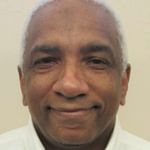
A federal appeals court has overturned the death sentences imposed on two brain damaged death-row prisoners in cases separately sent back for further review by the U.S. Supreme Court. On October 15, 2019, the U.S. Court of Appeals for the 11th Circuit ordered a new sentencing hearing for Alabama death-row prisoner James McWilliams. Two days later, another three-judge panel of the 11th Circuit granted a new penalty hearing to Georgia death-row prisoner Lawrence Jefferson. Both men had been sentenced to death in 1986 and later challenged their death sentences because their juries had not heard evidence of their brain damage. State and federal courts had turned down the appeals for both men but — for different reasons — the U.S. Supreme Court reversed those rulings and directed the lower courts to reconsider the issues in the cases.

Lawrence Jefferson was sentenced to death for a 1985 murder during an armed robbery in Cobb County, Georgia. Although Jefferson had a visibly misshapen skull and scarring on his forehead from being run over by a car when he was two years old, the lawyers the county appointed to represent him failed to investigate evidence of brain damage. A defense psychologist recommended that Jefferson’s trial lawyers obtain a neuropsychological evaluation to assess Jefferson’s brain injury and mental health, but the lawyers ignored that advice. When an examination was conducted during Jefferson’s appeals, it disclosed significant evidence of brain damage that the 11th Circuit later described as “the most powerful explanation for an otherwise inexplicable crime.” A defense neurologist explained that “the most common thing with a closed head injury, traumatic injury of this sort, is problems with judgments, executive planning, and impulse control, the ability to foresee the consequences of your action in the future, as opposed to right now.”

James McWilliams has been on Alabama’s death row since 1986. Like Jefferson, he also has brain damage that was not presented at his trial. In McWilliams’ case, the evidence was not presented because he was denied assistance from an independent mental health expert. The court appointed a mental health expert who produced a neuropsychological report finding “organic brain damage,” “genuine neuropsychological problems,” and “an obvious neuropsychological deficit.” However, his defense team was given the report only two days before his sentencing hearing, were provided voluminous mental health records one day later, and received his prison records on the day of the sentencing. The trial court denied Jefferson a continuance to obtain the help of an expert to review the information and, despite the votes of two jurors for a life sentence, imposed the death penalty. The U.S. Supreme Court sent his case back for further consideration in 2017.
Both cases involved serious procedural barriers to the fair presentation of mental health evidence and to a fair adjudication of the issues. Without the assistance of a mental health expert, McWilliams’ lawyers could not review and understand the report and records they received about his mental impairments in time for the hearing, and with the expert appointed by the court consulting with the prosecution, nothing they discussed with him — including defense strategy — would be legally privileged.
The Supreme Court held that the denial of an independent mental health expert violated due process and directed the court of appeals to determine if that error required reversing McWilliams’ death sentence. Two of the judges ruled that the denial of an expert constituted a “structural error” that made it impossible for McWilliams to receive a fair sentencing. A third judge disagreed that the error was structural, but found the denial of an independent expert was prejudicial.
Jefferson’s case turned on the fairness of the state court’s consideration of his brain damage evidence. After Jefferson’s appeal lawyers presented evidence of his brain damage to the state court, the trial court judge asked the prosecution to prepare an order denying relief. The court adopted the proposed order — which contained numerous inaccuracies, including referring to witnesses who had not even testified — without changing a word and without providing Jefferson’s lawyers an opportunity to respond.
The U.S. District Court for the Northern District of Georgia reversed the decision, finding that Jefferson’s lawyers had been ineffective. However, declaring itself “duty bound” to defer to the state court factfinding, the federal appeals court reinstated Jefferson’s death sentence. In 2010, the Supreme Court reversed and directed the federal courts to determine whether the state courts had provided Jefferson a full and fair hearing. After additional years of litigation, the district court ruled in 2017 that the state court hearing had not been full and fair and again found Jefferson’s penalty phase representation to have been ineffective. This time, the 11th Circuit agreed and, 33 years after Jefferson had been sent to death row, it granted him a new sentencing hearing.
Court Says Georgia Death Row Inmate Should Be Resentenced, Associated Press, October 17, 2019; Peter Hayes, Death Sentence Tossed; Jury Not Told of Defendant’s Brain Injury, Bloomberg Law, October 18, 2019.
Read the 11th Circuit’s decisions in Lawrence Jefferson v. GDCP Warden and James McWilliams v. Commissioner, Alabama Department of Corrections.

